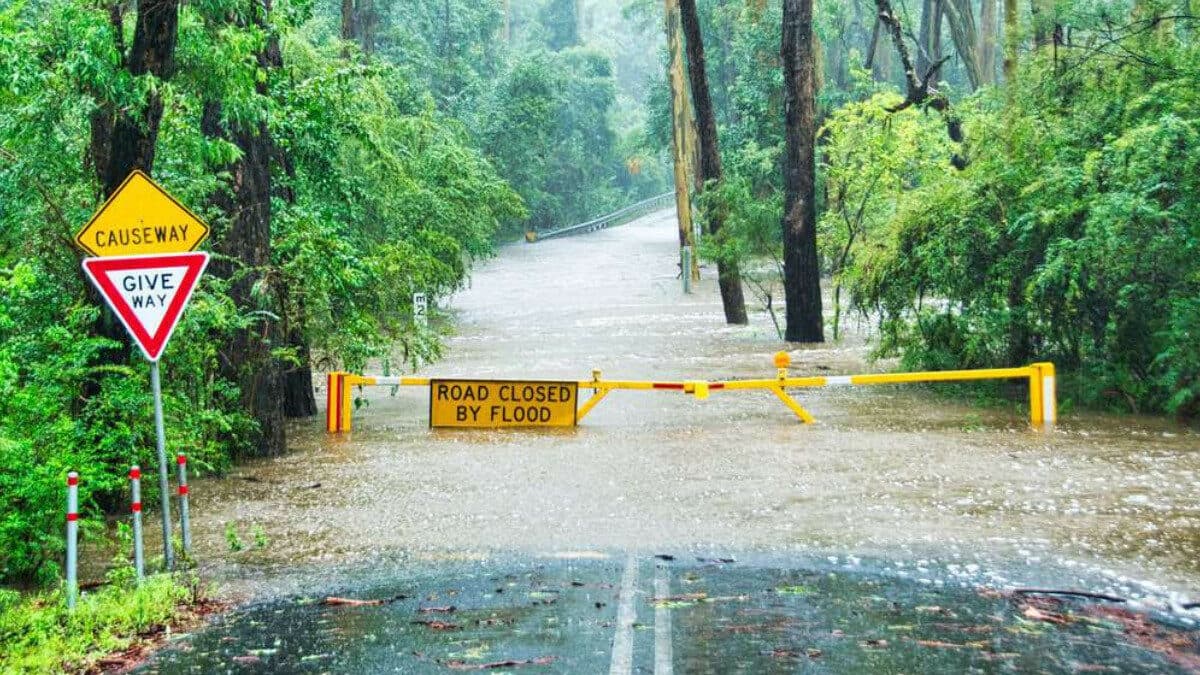This article is not financial, legal advice, we have not considered your personal circumstances and strongly advise you to seek your own professional advice.
It hasn’t been an easy start to 2022 for Australia. From Covid-cases to shadow lockdown and labour shortages, businesses have undoubtedly struggled. And now, some are facing another challenge, natural disaster.
As South-East Queensland and parts of New South Wales face devastating flooding, It is a time of great uncertainty and worries for affected business operators and workers.
Employers are worried about the cost, while workers are worried about their financial security.
What can you do if your business is affected?
Flooding can cause substantial and prolonged disruption to many businesses. Problems range from minor inconvenience to complete shutdown, with limited prospects of returning to anything like normal operations any time soon.
It can take months or years for some businesses to recover from severe weather events fully. Having a plan to respond and recover from an extreme weather event can help speed recovery.
Business QLD suggests small businesses do the following in the initial stages of recovery:
- Return to premises when safe and secure dangerous debris.
- Assess damage to buildings, assets, vehicles and equipment.
- Record decisions and photos and/or videos of damage in an event log for insurance claims.
- Contact your landlord and insurer before cleaning up – they may fund clean-up and require authorisation before repairs begin.
- Lodge your insurance claim early – don’t wait for a full damage assessment before lodging.
- Contact your insurer or bank for emergency funds or recovery activities.
- Contact your local council about kerbside pick-up.
You can find more information about flood preparation and recovery here.
What are my obligations as an employer?
If workplaces are forced to close due to flooding, employers should consider available options for their employees. In some cases, standing down staff for a time may be necessary.
So what is the legality around standing down staff? Employers may stand down employees under The Fair Work Act 2009 (FW Act). The Act allows employers to stand down employees in certain circumstances when the employee cannot be usefully employed.
This includes where they can’t be employed because work has stopped for a reason the employer cannot be held responsible, such as natural disasters (bushfires or floods).
An employer is not required to pay staff for the duration of the stand down but may choose to if they wish.
If an employer does stand down employees under the FW Act provisions, it is best practice to inform employees in writing), including:
- the start date of the stand down
- whether the employees will or will not be paid
- the effect on other employment entitlements.
Employers should also make an effort to update staff about when they believe the stand-down will end.
What are the alternatives to standing down employees?
Before standing down staff, employers should consider all other options available. These include:
- inviting employees to take a period of accrued paid leave (for example, annual leave)
- requiring employees to take annual leave if their award or agreement allows it, or if the employee is award or agreement free (and the requirement is reasonable)
- if there are multiple worksites and not all sites are affected, consider voluntary work-sharing arrangements (for example, employees at non-affected sites may offer to take paid leave while someone from an affected site temporarily fills their position)
- where appropriate, consider flexible arrangements, like working from home.
You can find more information about employer obligations during natural disasters here.
Government assistance for businesses and workers
Federal assistance:
The Federal Government has activated the Disaster Recovery Payment of $1000 per eligible adult and $400 per eligible child to support people impacted by the South East Queensland flooding.
The payment is available for individuals directly impacted by flooding who have suffered a significant loss, including a severely damaged or destroyed home or severe injury.
The Disaster Recovery Allowance will also be available to businesses in affected local government areas.
Disaster Recovery Funding has been made available in 13 local government areas in Western Queensland and 17 in southeast Queensland.
These areas are: Barcoo, Boulia, Bulloo, Burke, Cloncurry, Diamantina, Flinders, Longreach, McKinlay, Mount Isa, Paroo, Quilpie, Winton, Brisbane, Fraser Coast, Gold Coast, Gympie, Ipswich, Lockyer Valley, Logan, Moreton Bay, Noosa, North Burnett, Redland, Scenic Rim, Somerset, South Burnett, Southern Downs, Sunshine Coast and Toowoomba.
To find out more about either payment, visit Service Australia
QLD assistance:
Disaster Assistance Loans are available for QLD businesses affected by flooding. Eligible businesses can access a Disaster Assistance Loan of up to $250,000 over up to 10 years.
These loans are intended to help businesses re-establish normal operations and can be used to repair or replace damaged equipment, repair or replace buildings, or meet rent and rates requirements.
Find out more information on the Disaster Assistance Loans here.
NSW assistance:
Disaster Relief Loans are available for small businesses in NSW affected by natural disasters. The low-interest loans of up to $130,000 are for small businesses that have been directly affected by a declared natural disaster, including floods, fires or storm damage.
This loan is intended to help small businesses return to a normal level of trading after a disaster by covering the repair costs and associated improvements not covered by insurance.
Find out more information on the Disaster Relief Loans here
Read more:Experimental CSIRO model to help in the fight against bushfires
Read more:SMB ombudsman launches natural disaster preparedness inquiry
Keep up to date with our stories on LinkedIn, Twitter, Facebook and Instagram.

